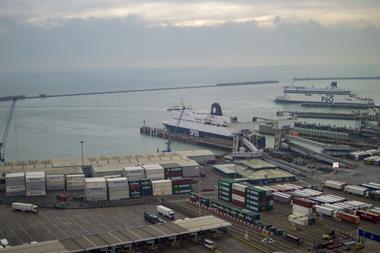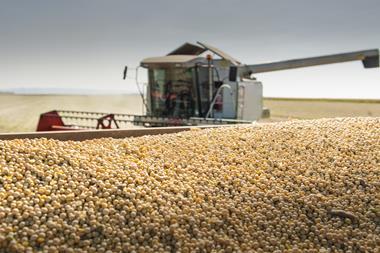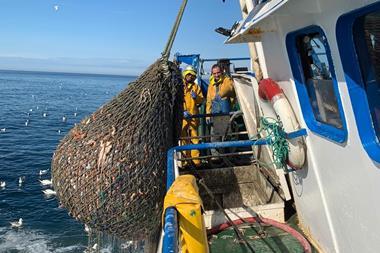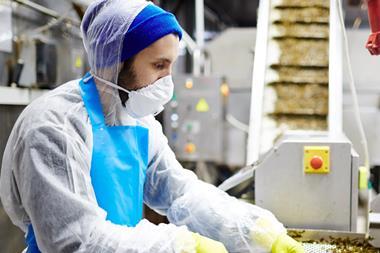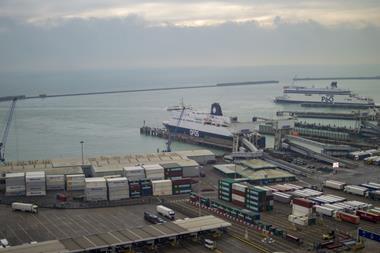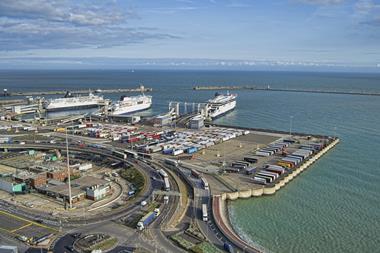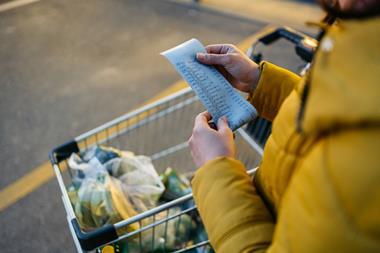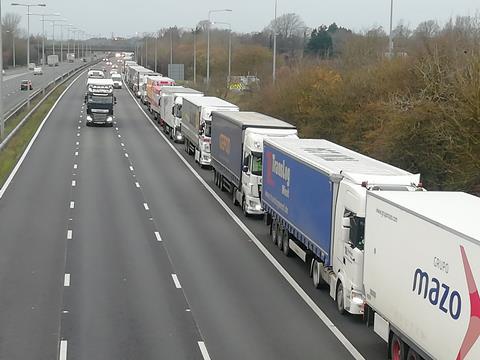
Days of “IT issues” affecting HMRC’s Goods Vehicle Movement System (GVMS) have exacerbated growing delays at UK ports, hauliers have warned.
Officials were this week forced to come up with what they claimed were “practical workarounds” to keep trade moving after its system went down late last week.
HMRC declined to comment on what caused the apparent IT meltdown, but said it aimed to “ensure businesses can keep goods and freight moving as smoothly as possible”.
This would see drivers – including those taking food to and from the EU – allowed to proceed through customs without the usual goods movement reference if they had a separate transit movement reference number.
The “interim” measures would remain in place until midday Thursday at the earliest, when HMRC was by Tuesday scheduled to announce an update.
The British International Freight Association said it was “advising members to make sure they have evidence that they have completed customs formalities before departing on exports or after arriving for imports”.
The GVMS breakdown came amid weekend delays and lines of freight traffic reported around Dover, which was put down to a mix of bad weather and ferry shortages, linked in part to operator P&O Ferries suspending services after controversially sacking hundreds of workers.
A port spokeswoman said “there is currently a high volume of freight traffic on the approach to the Port of Dover” which port management aimed to reduce “as efficiently as possible”.
The P&O suspension has been “a complete disaster”, said Steve Cock, customs consultancy director at KGH Customs.
Rival ferry operator DFDS was also forced to cut back on sailings out of Dover after one of its ships was damaged due to hitting a berth in Dunkirk in stormy weather, according to some media reports.
DFDS on Tuesday described freight traffic heading into Dover on English roads as “busy”, taking to social media to ask truckers to “ensure you are in the correct lane when queuing in Operation Brock [a post-Brexit freight traffic management system] and heading to the Port of Dover”.
It later told The Grocer it was “doing what we can to minimise disruption, including adding extra sailings where we can and continuing to work with the ports, local authorities and customers to try to find solutions”.
Logistics UK, another industry group, said it has been “monitoring the situation at the Channel ports closely” after what it said were “a number of issues for vehicles transiting the border”.
“Some delays are currently unavoidable” according to a Logistics UK spokeswoman, who said its members were “well versed in being flexible and adapting”.
But with traders hampered for more than a year by a mix of surging fuel and transport costs, extra paperwork linked to Brexit and further complications arising out of pandemic restrictions, the latest hitches created “additional work” for businesses, BIFA said, despite the HMRC workarounds.
The delays meant extra costs for lorry drivers, according to Cock. “Trade is down and so goods will be in short supply. The net result, just when we don’t need it, is more inflationary pressure,” he said.
The British Meat Processors Association said its members had not been affected by delays at Dover or the GVMS outage. The Grocer has approached several food industry representatives for comment.







